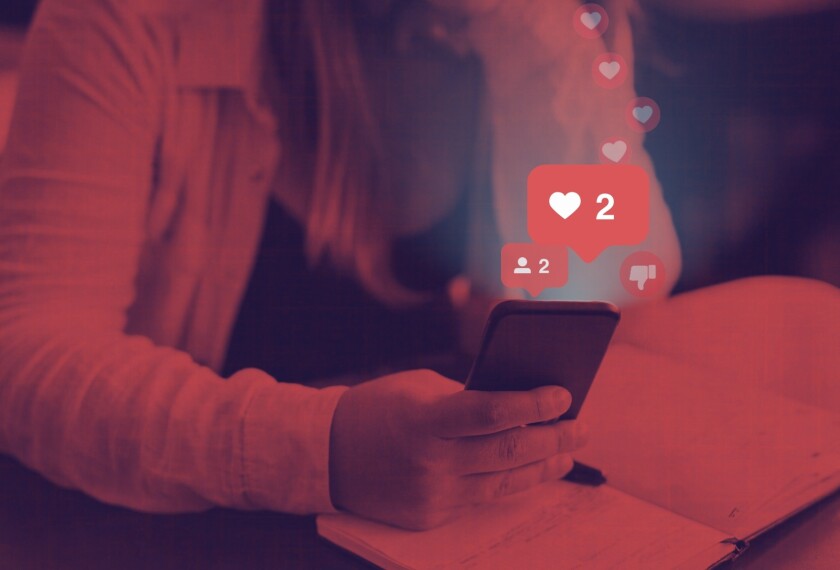Cellphones present an enormous distraction in the classroom. Even when the devices aren’t actually being used, the mere jolt from cellphone notifications can capture students’ attention, taking them up to 20 minutes to refocus, according to a recent from the United Nations. In response, an increasing number of schools and districts in the United States are tightening cellphone restrictions.
In 2015, 66 percent of U.S. schools had bans on the books. By 2020, the percentage of schools with cellphone bans had jumped to 77 percent, according to the . Some states are making it easier for schools to implement cellphone bans, as California and Tennessee recently passed laws that allow schools to restrict cellphone use.
Policies restricting or altogether banning cellphone use in classrooms would be expected to elicit favorable responses from teachers and principals.
You would not expect a similar response from students. But educators are seeing a good number of students who actually welcome those restrictions, too.
‘I like it because it helps me connect more with my friends, and it limits distractions’
Lake Forest High school, the sole school in the Lake Forest Community High School District 115 in Illinois, recently formed a student focus group to get feedback and offer recommendations on ways to support the school’s pre-existing cellphone policy, which restricts use of the devices to outside of classrooms.
“I have had multiple students come up to me and say, ‘Thank you,’” said Matthew Montgomery, district superintendent, referring to the school’s renewed emphasis this year on a unified and well-publicized effort to support the cellphone policy.
He acknowledged that even his daughter, a student at the high school with whom he normally avoids discussing school policies and procedures, expressed her appreciation. “She is relieved,” said Montgomery, adding that his daughter shared with him how distracting she found cellphones in the classroom at a previous school she attended.
Others report similar experiences. “Students’ responses have been positive. They’re saying ‘thank you,’” said Heather Perry, superintendent of schools in Maine’s Gorham School District, where students are required to place their cellphones in “phone hotels"—basically plastic sleeves hanging on classroom walls—during class periods.
Teachers are reporting similar findings. One month after the implementation of a new policy banning cellphones from use in classrooms at Breck, a private school in Golden Valley, Minn., high school English teacher Emily Brisse, sharing her experience in an essay, asked her students to share their reflections on it. The responses include these two: “I like it because it helps me connect more with my friends, and it limits distractions” and “it’s helped me not be as reliant on it.”
Cellphone restrictions help relieve students from social pressures
School policies that restrict cellphone use can provide the “out” that many adolescents and teens need to resist the temptation to use their devices constantly, said Dan Florell, an assistant psychology professor at Eastern Kentucky University and a school psychologist. He likens cellphone policies to his own experiences as a teen, when he would lean on his mother’s rules when faced with a situation he knew was potentially risky, such as attending an unsupervised party.
“She was the ‘out,’” said Florell, who acknowledged that he, like other teens, might complain about his mother’s curfew to his friends while actually being relieved that he wasn’t burdened by making a tough decision. A classroom cellphone ban can work similarly.
“Adolescence is a time to figure out where you are, socially. You don’t want to be left behind,” Florell said. “If you’re not online, you feel like you’re going to miss out; it’s almost paralyzing to teens. But now, [with cellphone bans], they know that everybody is going to be missing out.”






